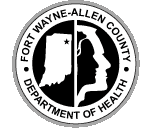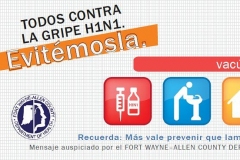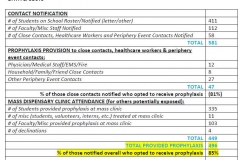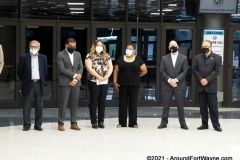
News release from the Fort Wayne-Allen County Health Department:
Protect your health by testing your home for Radon Gas
Free test kits available while supplies last
(October 7, 2015) – You can’t see, smell, or taste radon, but it could be present at a dangerous level in your home.
Radon is a naturally-occurring radioactive gas responsible for more than 2,000 lung cancer deaths each year in the United States. Because it is odorless and invisible, the only way to know if you are being exposed in your home is to run a test.
The Fort Wayne-Allen County Department of Health is urging residents to reduce their risk of lung cancer by having their homes tested. Testing is simple and free test kits are available at the following locations in Allen County while supplies last:
- Fort Wayne-Allen County Department of Health
200 E. Berry St., Suite 360
Monday – Friday, 8 a.m. – 5 p.m.- Vector Control & Environmental Services
2242 Carroll Road
Monday – Friday, 8 a.m. – 4:30 pm- Grabill Town Hall
13717 1st St.
Monday – Thursday, 9:30 a.m. – 4 p.m.- Leo-Cedarville Town Hall
13909 Pony Express Run
Monday – Friday, 7:30 a.m. – 2:30 p.m.- Monroeville Utility Department
101 S Water St.- New Haven Utility Payment Office
City Hall, 815 E Lincoln Hwy.
Monday – Friday, 8 a.m. – 4 p.m.- Woodburn City Hall
22735 Main St.
Monday – Friday, 8 a.m. – 1 p.m.Kits can also be purchased at local hardware and home improvement stores for around $30. You also can hire a qualified radon professional to do a test for you.
Be sure to follow the directions on the packaging for the proper placement of the device and where to send the test kit to get your results.
If a high radon level is detected in your home, there are steps you can take to fix the problem to protect yourself and your family.
For more information on radon, visit www.allencountyhealth.com or www.epa.gov/radon.
About Radon
Radon is a natural, radioactive gas that is colorless, tasteless, and odorless. It is formed from the natural breakdown of uranium in the soil, rocks, and water under homes and can seep up from the ground into home s and buildings through cracks in foundations, basement walls, and sump pumps. Long-term exposure to radon gas is the leading cause of lung cancer in non-smokers, and the second-leading cause of lung cancer in the U.S. The only way to know if you are being exposed to radon in your home is to run a test. EPA recommends that all homes in the U.S. be tested for radon.











